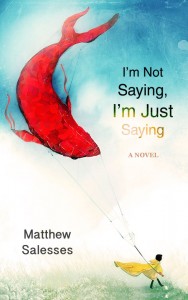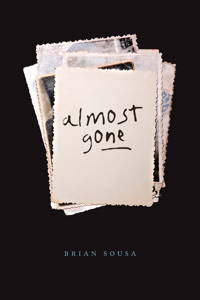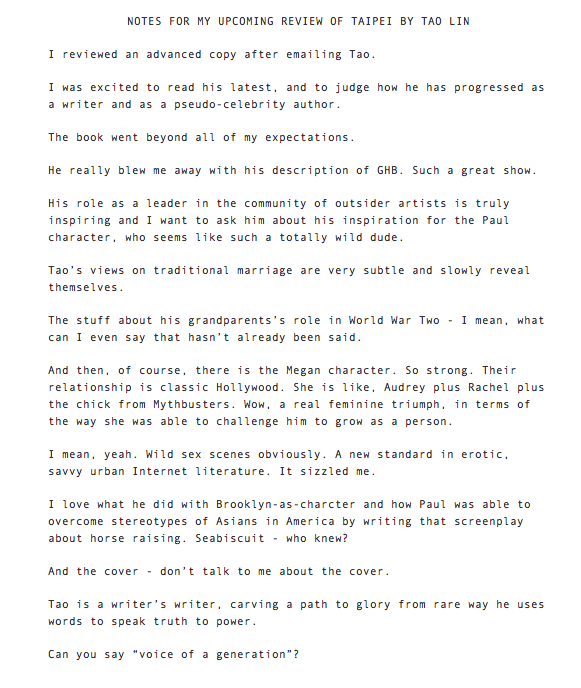An Interview with the Creators of Starseed Pilgrim
Yesterday, after my lunch but before theirs, I interviewed Droqen (i.e., Alexander Martin) and Ryan Roth, the developer and sound designer of Starseed Pilgrim, a beautiful, mysterious game about “tending a symphonic garden, exploring space, and embracing fate.” It’s six dollars and I am extremely confident your computer can run it. I was kind of awkward and shy, predictably, but the two of them did great. We did it as a video because that was expedient, but if I were you I would treat it like a podcast — listen to the audio; don’t feel like you’ve got to watch. We talked mostly about video games — Starseed Pilgrim, Droqen’s other games, stuff we had all played and enjoyed, and things we didn’t like so much. But I don’t think you have to like video games very much to find a lot of what they said interesting. I made some annotations (indexed by time code) to provide context and further information for the things we discussed; click past the fold to see them. READ MORE >
Baltimore Book Club on Joe Hall
 Discussed: The Devotional Poems by Joe Hall
Discussed: The Devotional Poems by Joe Hall
Present: Joseph Young, Amanda McCormick, Tracy Dimond, Caryn Lazzuri, Laura van den Berg, Linda Franklin, Matthew Zingg, Jamie GP, Chris Mason, Dave K, Adam Robinson
Tardy: Megan McShea
Jamie GP: Don’t read anything, don’t read anything about Star Trek, just go see it.
Adam: Chris, I just told everyone we are going to take notes and put them on HTMLGiant like a review, is that okay?
Chris: Cool.
Adam: With all our names.
Chris: Cool.
Joe: All right. Do people like this book? I mean I want to call this guy Joe Hallmark because it’s so sappy.
Dave K: Oh!
Linda: I actually didn’t like it at all. I liked about 8 lines. READ MORE >
Dear Everyone
This is a post about Seth Oelbaum, and I wish that it wasn’t.
I got my copy of the keys to this blog while I was unemployed. I had just quit a job not because I hated it, and not because I didn’t like the people there, but because I wasn’t very good at it. This was hard for me because I am the sort of person who needs to believe he is the best at basically everything. I am a teacher’s pet, a perfectionist, a people-pleaser, a needy pile of nerves, sometimes. The way I started writing here is this: I had written at the blog for my magazine for a while, and some people here had liked some of the posts. Roxane Gay was one of those people. She told me she had suggested to Blake Butler that I be invited to post here. Blake seemed receptive, but nothing happened, and meanwhile I was looking for work but not finding any and I spent most of the day sitting on my couch reading job listings and feeling my heart hurt. I needed to feel like I was succeeding in something. I thought that one way I could feel like I was succeeding would be to write for this blog, which had been a comfort to me in grad school, where two different instructors made me openly cry by telling me that I was no good at fiction. I liked to tell myself that the sort of people who read this blog would like what I was writing, and in fact had liked it in the past, as evidenced by certain posts and discussions, and that there were a lot of people who read this blog, and so I couldn’t be all bad. Now, unemployed, heart aching, I thought that writing things here might help me feel better again, and that it might advance my writing career in some way, which is important to me, because of said personality defects. So I sent Blake a gchat and asked him if I could please start writing here. I think I e-mailed him about it too. He said yes. And so I did.
So for a while I posted a lot, and I watched my posts closely to see how they did in terms of traffic and comments, especially as compared to other posts by other, more popular writers, to the extent that the WordPress back end would let me discern that. It made me feel productive. My heart hurt a little less.
My posting slowed to a trickle when I found new (and very stressful) work. I also had a super-long novel to finish, and a story in Best American Short Stories, which made me feel that I needed to do other things (like finish said super-long novel) in order to capitalize on this success, for the sake of the aforementioned writing career. For a while, I didn’t read this blog, except very occasionally when I saw that A D Jameson had written something especially geeky, which is basically my jam. When I started reading again, I saw that Seth Oelbaum was posting with some regularity. And that made me want to never write here again. It made me want to stay away. READ MORE >
I’m Not Saying, I’m Just Saying
 I’m Not Saying, I’m Just Saying
I’m Not Saying, I’m Just Saying
by Matthew Salesses
Civil Coping Mechanisms, February 2013
138 pages / $13.95 Buy from Amazon
Koi fish have hundreds of scales that form a protective armor around them. Matthew Salesses’s I’m Not Saying, I’m Just Saying is a collection of 115 flash fictions that, like those scales, explore the spoken and unspoken nuances that connect and glue relationships in all their misfit forms. Many of the characters go unnamed, a decision that suggests that the companions symbolize divergent desires. There’s the wifely woman who’s his main lover and there’s a “white woman” who acts as a mistress as well as another Korean woman who is in place “for emergencies.” Each serve a different need, though none can satisfy him because he partitions himself like the segmented chapters that comprise the book. They are lyrical segments akin to jazz solos forming a striking concerto of prose. The impetus that triggers the journey of the book is the appearance of a son he never knew he had. When the boy’s mother, an old lover, passes away, the narrator takes the son into his home. Rather than a definitive reaction to this revelation, there’s a miasma of conflicted emotion, an uncertainty that could best be summed up in the piece, “She Was a Tsunami to His Earthquake:”
His lovers, his co-workers, and finally, his son, form a tenuous thread that bind the invisible wavelengths of his life together. Only, he is always trying to split them apart and keep them isolated in a delicately stratified web. In describing the side girl-on-the-side, he says: “I had to be careful with her, though I wasn’t technically married, because she collected the crumbs of truth, but for an hour with her, I was someone else, and when I left, I could discard that part of me and know it would be repossessed.” The elegance of the book lies in the poetic congruence with which his life is shattered by circumstantial incongruence. Say, for example, his observation at an art gallery with his son that only the letter T separates the word “paint” from “pain.” This was an association formed from his failure to be the artist he aspired to be as a freshman in college. He is protecting himself from pain, but entering it willingly to try to teach his son something about painting. That contradiction of both being in the mural and trying to control it hints at the theme of a man all too aware of his foibles and flaws, but still is helpless to do anything about it. Twisted accents in his relationships add shades and make every interaction a layered strip tease, tantalizingly bare without showing anything essential:
May 17th, 2013 / 11:00 am
Almost Gone by Brian Sousa
 Almost Gone
Almost Gone
by Brian Sousa
Tagus Press at UMass Dartmouth, February 2013
192 pages / $19.95 Buy from Tagus Press or Amazon
Brian Sousa’s debut is a novel-in-stories about the life and tragedies of three generations of a Portuguese-American family living in Rhode Island. Their lives are punctuated with a series of desperate escapes abroad, beginning with Scott on the beaches of Brazil mourning the death of his young daughter, re-enacting her drowning in several senses of the word. He doesn’t know that it was a similar flight of desperation that brought his grandmother and grandfather to America from Lagos, Portugal many years ago.
The characters may occasionally run, but they cannot hide from their literary fate. Each character’s private pain explored in turn; each timely revelation increases the stakes. Helena emigrates from Lagos with her husband Nuno, and finds her life in America barren and cruel in comparison. Nuno cannot muster any grief for his wife’s death, and instead nurses his obsession with Catarina, the beautiful Portuguese woman who lives in the guest cottage behind his house. Nuno’s son Paulo listens to his teenage son Scott having sex, while his own marriage is rapidly deteriorating around him. Ten years later, Scott’s marriage is no better: he loses his child and abandons his wife. The unwitting observer to all of this family drama is Catarina, who can never seem to escape her fate as the object of every man’s desire. She too leaves her husband, fleeing into the streets of Granada.
These are stories of loss, infidelity, alienation…all the persistent demons of modern suburban life. And for that matter, of suburban literature since the dawn of Cheever. But Almost Gone glimmers when Sousa manages to step outside conventional grief, and twist the knife ever so slightly. The best example of this is a deeply awkward scene where Nuno arrives at the cottage to woo Catarina, after his son Paulo has just tried the same and left, rejected. Nuno falls, and pleads with her from the ground:
May 17th, 2013 / 11:00 am
Maybe if…
Maybe if Syrian people started being blown up while running marathons in Boston then the white race would care more about it…
Men in partial or full military dress went door to door, separating men — and boys 10 and older — from women and younger children.
Residents said some gunmen were from the National Defense Forces, the new framework for pro-government militias, mainly Alawites in the Baniyas area. They bludgeoned and shot men, shot or stabbed families to death and burned houses and bodies.
– “Grisly Killings in Syrian Towns Dim Hopes for Peace Talks,” Anne Barnard
… Although, according to Baby Adolf, if you want attention for being killed by the boatloads then you should probably be J E W I S H.
Speaking of that, Baby Idi is having a hard time comprehending that “Jewish, New York sense of humor.” Is there anyone out there that can elucidate it for him?
… Anywho, Baby Marie-Antoinette could really use a soft cherry cream cheese croissant right about now.
25 Points: The Stud Book
 The Stud Book
The Stud Book
by Monica Drake
Hogarth, 2013
336 pages / $25.00 buy from Amazon
1. Monica Drake has written a compelling novel of manners.
2. The Stud Book follows a group of adult friends in Portland, Oregon (aka everyone living in America today) as they reconcile expectations with reality.
3. There is a zookeeper, a mortgage underwriter, a photographer, a yogi, and a computer repairman. Unsurprisingly, hilarity ensues.
4. Drake diffuses the novel’s many anticlimaxes (mishaps, muddled careers, domestic failings, generally unrealized ambitions) with a singular sense of humor.
5. The Stud Book is a book about motherhood. And the baby jokes crackle. A woman mistakenly licks a bit of dirty diaper from her shirt (not mustard!); another knocks an Oxycodone into an infant’s mouth. Drake exploits babies like the vulnerable little props they are.
6. Drug humor abounds as the friends imbibe in the manner of well-established stoner citizens. Justifying a “Volcano” vaporizer at a high school assembly one says, “I’ve got a chronic pain problem. This is totally legal.” Another drives high, she “ignoring the dosing instructions… nibbled pills all day long.” “She’d started to see the benefit: a military dose of Klonopin with red wine, dished out like a free lunch, would end the troubles in the Gaza Strip.” “Her car was speckled with pink, pale yellow, and white pill crumbs, Klonopin, diazepam, Vicodin.”
7. But beyond bad behavior, Drake finds a gentle humor in frailty.
8. On justifying the purchase of a derelict storefront, “Crack addicts curled in the recessed doorway and cans of OE8 littered the curb, but there was a Starbucks practically next door. Starbucks with their market research was an indicator the neighborhood was poised for an upswing.”
9. On Mrs. Cherryholmes, the beautiful but villainous school principal, “Her lipstick was frosted, too, in a sheen of confidence. That was probably the actual lipstick color: Administrative Confidence.”
10. One particularly funny and gruesome scene of self-love is a shoo-in for the annual bad sex in writing award, “He spit on his hand, cupped it and rubbed his damp palm over the head of the cock.” READ MORE >
May 14th, 2013 / 5:35 pm





